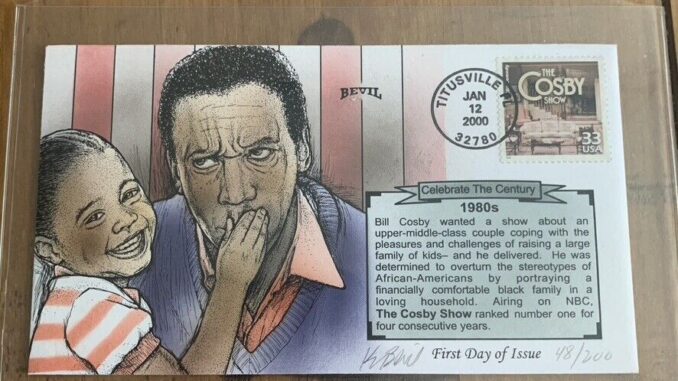
In the 1980s, The Cosby Show didn’t just entertain; it shifted the cultural landscape of television.
When it premiered in 1984, it was a groundbreaking moment, bringing a fresh perspective to American households. The show starred Bill Cosby as Dr. Heathcliff “Cliff” Huxtable, a successful African-American doctor, and Phylicia Rashad as Clair Huxtable, a smart and powerful lawyer. Together, they portrayed a loving, intelligent, and relatable family that resonated across all demographics, making it a beloved fixture in homes nationwide.
Unlike many sitcoms of its time, The Cosby Show offered a portrayal of African-American life that wasn’t centered on struggle or hardship, but on family values, success, and humor. It depicted the Huxtables as a well-educated, upper-middle-class family, challenging stereotypes and presenting a new, aspirational image of Black America. This was a refreshing shift for television, which previously hadn’t featured African-American families in such roles.

What made The Cosby Show unique was its emphasis on positive representation. The Huxtable children, while dealing with typical teenage and childhood challenges, were guided by their loving and wise parents in a nurturing environment. Each episode often ended with a lesson, wrapped in warmth and humor. The series showcased the importance of education, integrity, and hard work, resonating deeply with audiences of all races.
The show wasn’t just a hit because of its social importance—it was genuinely funny. Bill Cosby’s wit, paired with Phylicia Rashad’s charm, created a dynamic and engaging on-screen couple. Supporting characters, like the sharp-tongued daughter Denise (Lisa Bonet) and the hilarious, mischievous Theo (Malcolm-Jamal Warner), added richness to the show, creating memorable moments that kept audiences coming back.
The Cosby Show also helped pave the way for future television series that featured diverse casts and stories. Shows like Fresh Prince of Bel-Air and Family Matters owe a lot to the success of The Cosby Show. It made networks realize that shows featuring African-American families could appeal to a wide audience, breaking down barriers in Hollywood.
Though the legacy of The Cosby Show has been overshadowed in recent years by controversies surrounding its lead actor, the impact the show had on television in the 1980s is undeniable. It redefined what a sitcom could be, made viewers laugh, and made them think. The Huxtables weren’t just a TV family—they were a cultural phenomenon that changed the way Black families were represented on screen, forever leaving their mark on television history.
